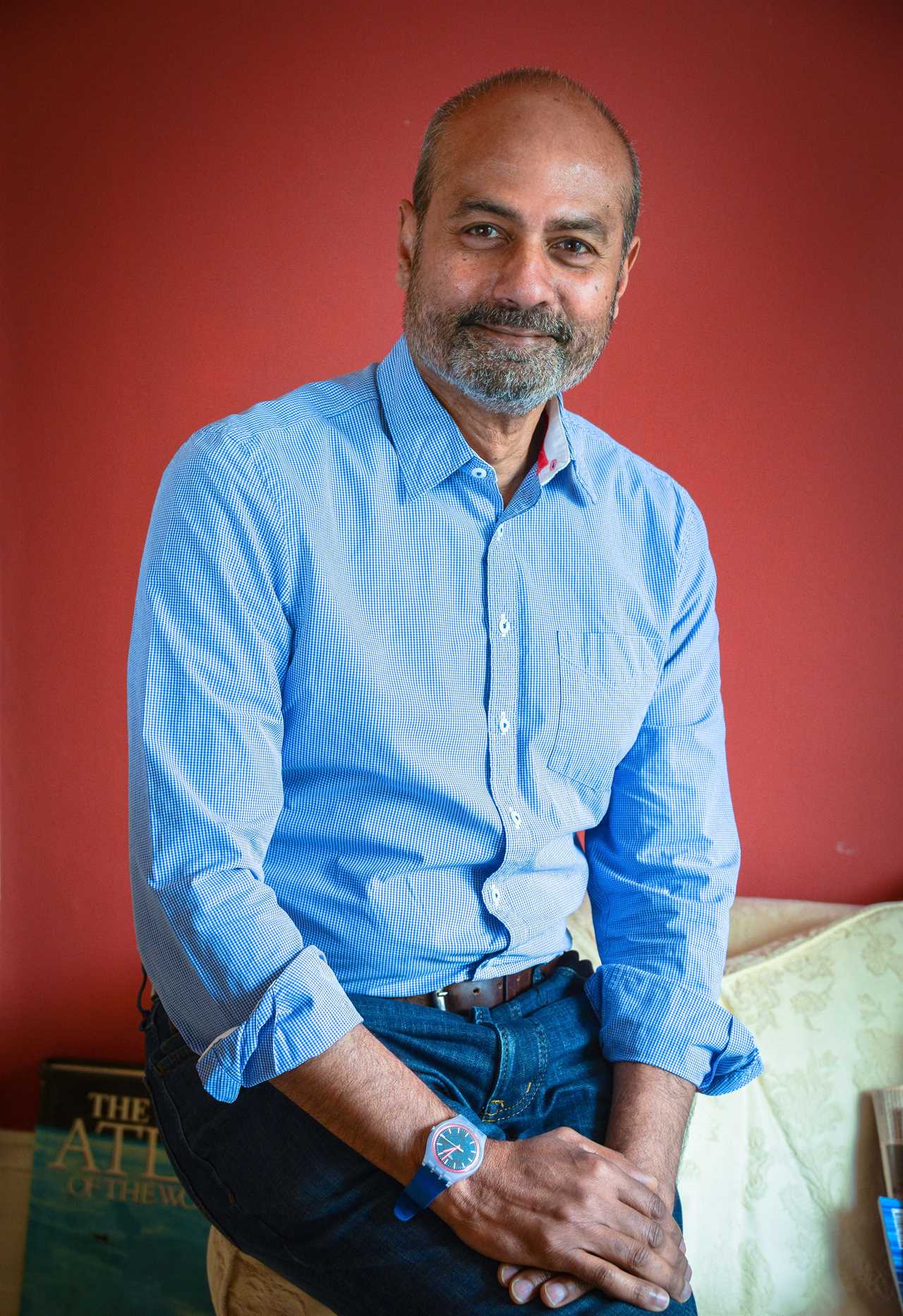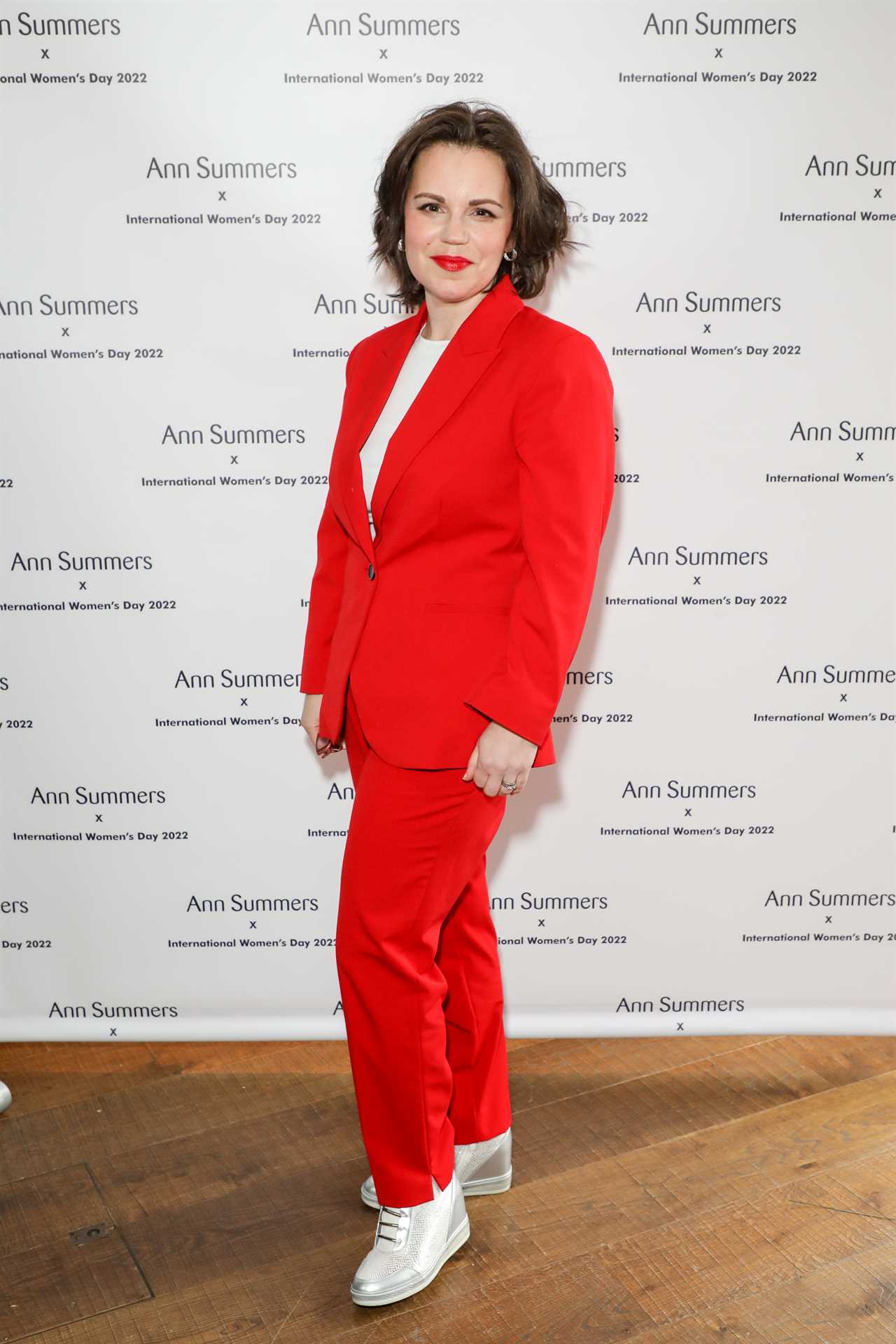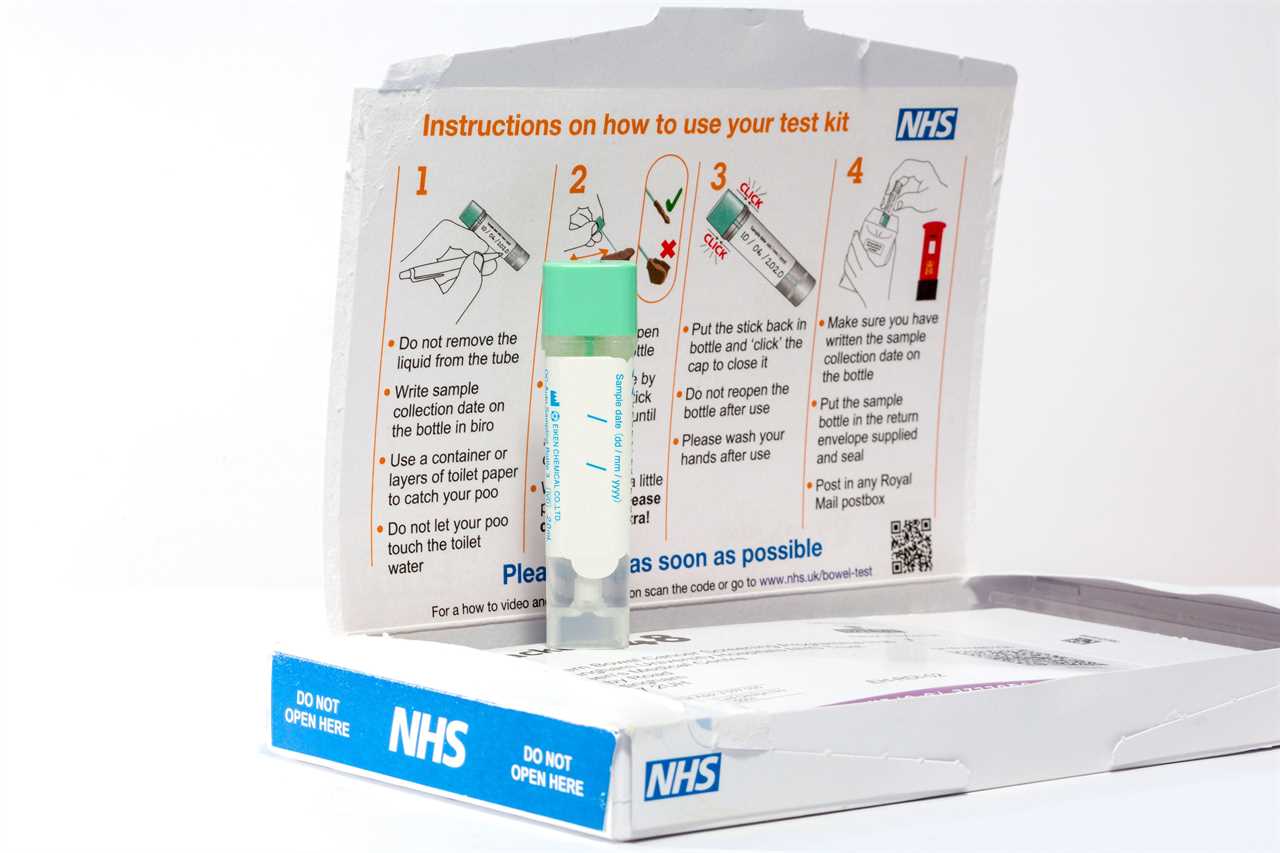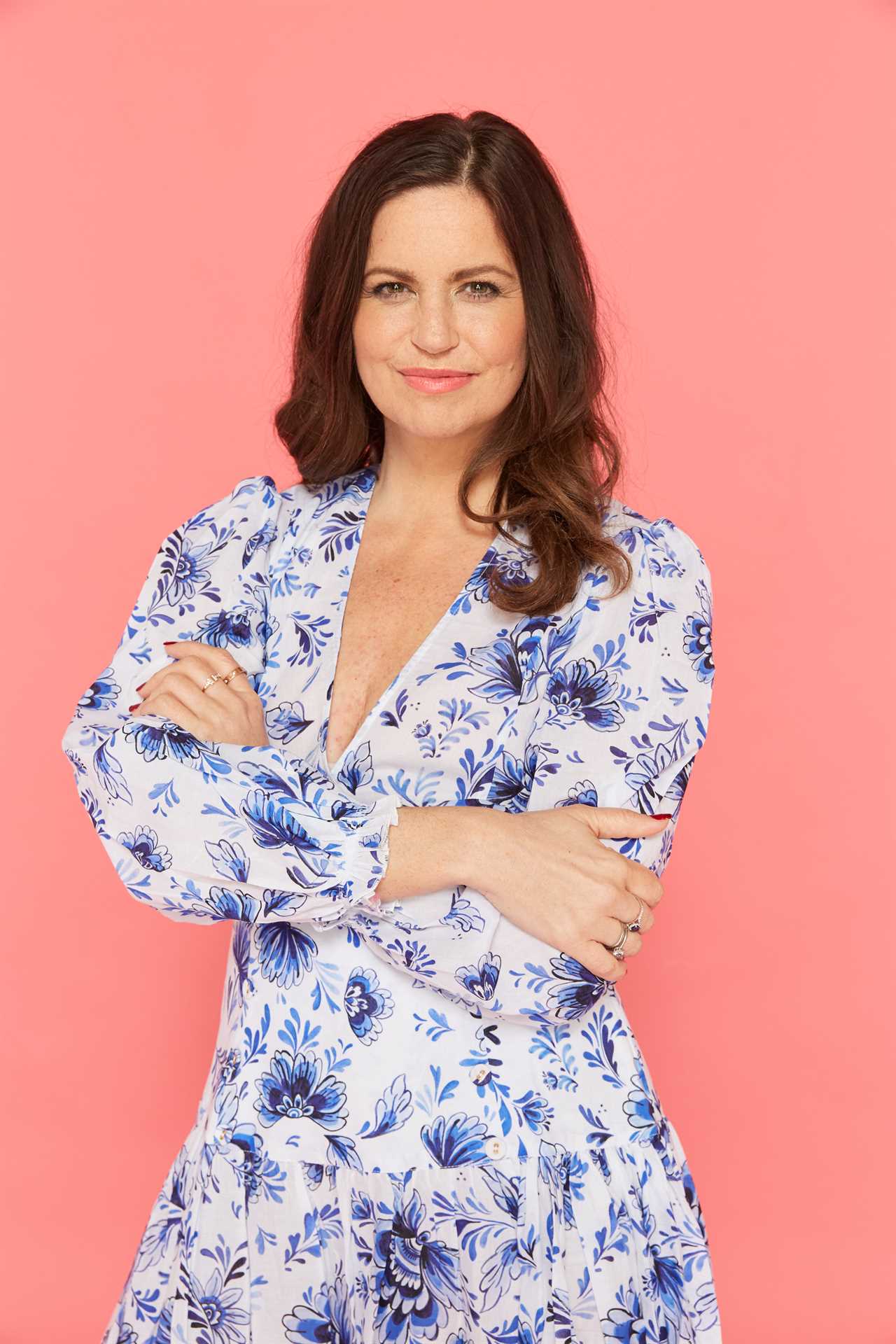THE death from bowel cancer of newsreader George Alagiah has now put the UK’s fourth-most common cancer and our second biggest cancer killer, firmly back in the spotlight.
George died, aged 67, less than a month after the first anniversary of Sun columnist Dame Deborah James’s death at 40 from stage 4 bowel cancer.

Newsreader George Alagiah passed away aged 67 from bowel cancer

Dr Philippa Kay was 39 when she was diagnosed with stage 2 bowel cancer
Two celebrities from different backgrounds, of different ages, with different jobs, but the same cancer and the same drive to raise awareness.
Cancer is a great equaliser — it doesn’t care who you are. I know, because I had bowel cancer too.
I was 39 when I was diagnosed with stage 2 and will remember seeing my cancer on the screen during my colonoscopy forever.
I turned to look at the surgeon, his eyes came up to meet mine, and before he said anything, I knew. Now, after multiple surgeries and chemotherapy, I am currently cancer free.
I live with the consequences and bowel symptoms of those surgeries as well as a premature menopause from chemotherapy.
I live with these gratefully, but also with guilt, as I am here while others are not. And yet, many cases of bowel cancer may be preventable.
Lifestyle factors, such as eating red and processed meat, obesity, smoking, alcohol, not enough physical activity and too little fibre in the diet are thought to be involved in just over half of cases.
And there are people, like me, without any lifestyle factors, who may have a genetic component or other reason and so develop bowel cancer anyway.
Time matters with cancer. The earlier it is found, the more likely it is to be treatable and the higher your chance of full recovery.
Approximately 90 per cent of people with stage 1 bowel cancer, the earliest stage where the cancer has not spread, will survive five years after diagnosis.
This falls to about ten per cent for people with stage 4 bowel cancer, where cancer has spread around the body.
SIGNS & SYMPTOMS
EVERYONE needs to know the signs and symptoms.
Bowel cancer is becoming more common in younger people, who aren’t eligible for screening, so doctors rely on you telling us that you have a symptom.
Do not assume that bleeding is down to piles or something else.
If you have any of the symptoms below, please see your doctor to be assessed. It doesn’t automatically mean you have cancer, but does mean you need to be checked over.
Symptoms include: Bleeding from your bottom – red blood on the paper, blood on or mixed in with your poo, or colouring the water in the toilet. Blood in the poo can look red or black.
Changes in bowel habits can also be a symptom – if your bowel habit changes for more than three weeks – be that to diarrhoea, constipation, softer or looser poo, going more or less often, or even constantly feeling like you need to open your bowels, even if you’ve just done so – get checked out.
Other symptoms include tummy pain for over three weeks, a lump in the tum, persistent bloating, unexplained weight loss, fatigue.
WE ALL POO
BOWEL cancer is literally the bum deal of cancer.
Many people find it embarrassing, which is one of the reasons why they don’t go to their GP.
But everybody poops! Please check it before you flush. Bowel cancer is generally slow growing, tending to start as a benign polyp (or lump) which eventually turns into a cancer. Polyps can often be removed at the colonoscopy stage.
I know when I was diagnosed with cancer, but I don’t know when it started.
And that is where screening comes in, to hopefully pick up a problem at an early stage, when it’s easier to treat.
GET SCREENED
NHS bowel cancer screening is available every two years for people in England aged 60-74, and from 50 in Scotland.
From 75 you won’t automatically be sent a screening kit, but can request one every two years via the free bowel cancer screening helpline: 0800 707 60 60.
Eligibility is gradually being lowered to age 50, thanks in part to Trending In The News’s No Time 2 Lose campaign, spearheaded by Dame Debs.
The rollout started in April 2021, so in some areas you may be invited from 56. The bowel cancer screening test — a faecal immunochemical test, (FIT test kit) involves a poo sample.
Instructions are in the kit; you collect the stool in a container in the toilet.
Don’t allow the poo to touch the toilet water.
Then use the plastic stick provided to scrape the stool so it covers all the small grooves on the stick. Not much is needed.
Then pop it in the sample bottle (make sure you hear/feel the click to show it is closed), wash your hands and send it off in the envelope provided.
The test looks for tiny amounts of blood in the stool not visible to the naked eye.
Your results will be sent to you in the post. If blood was found in the poo, you will be invited for a colonoscopy, but having a positive screening test does not mean you have cancer.
If you have a symptom and see your GP, they are likely to refer you on a two-week wait suspected cancer pathway to see a specialist, though again, this does not automatically mean that you have cancer.
A colonoscopy will likely follow, and involves a small camera being inserted into your bottom to see the insides of your bowel.
If cancer is found, treatment will depend on the stage, how far, if at all, it has spread and can include surgery, chemotherapy, radiotherapy and more.
DON’T PUT OFF TESTING
IN May, George tweeted: “I wish I’d had access to one of these kits when I was diagnosed nine years ago.”
He was a supporter of lowering the age for bowel cancer screening to 50, like Dame Debs.
Starting at 50 would have been too late for her and for me, but it won’t be for many.
In 2018, Debs wrote in her Things Cancer Made Me Say column: “When you get that letter in the post inviting you to take part in the screening programme, don’t just ignore it.
“Get the test sent out to you, grit your teeth and get on with it.
“Don’t die because you are shy and too embarrassed to do a simple poo test!”
If I’d been offered screening earlier, I may not have developed cancer at all, so please, if your testing kit is propped up on the loo but not completed, just do it.
I wish celebrities, or indeed anyone at all, didn’t have to die of cancer for people to decide to take part in screening, or go to the doctor with symptoms.
But if anything positive can be taken from their passing, it is the impact of them talking about their condition and how that will undoubtedly save lives.

In May, George tweeted: ‘I wish I’d had access to one of these kits when I was diagnosed nine years ago’

Sun columnist Dame Deborah James’s died at 40 from stage 4 bowel cancer






